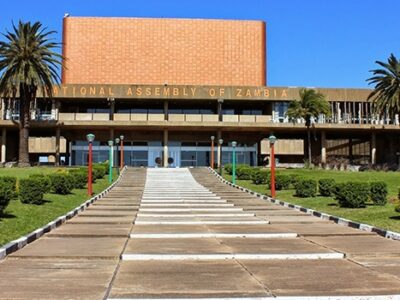The Scottish government has awarded a £1 million grant to Zambia and Malawi to establish a state-of-the-art diagnostic facility at the University of Zambia (UNZA).
This grant would also fund the procurement of advanced laboratory equipment.
The laboratory, part of the Lusaka-Blantyre-Blantyre Laboratory project, is a collaboration between the University of Glasgow, Kamuzu University of Health Sciences of Malawi, and UNZA.
The partnership aims to advance biomedical and healthcare research in Southern Africa.
Dr Brilliant Habeenzu, Permanent Secretary of Technology and Science, and Joe Kamoko, Permanent Secretary of Education, inaugurated the laboratory at UNZA Ridgeway Campus in Lusaka on Friday.
Habeenzu highlighted the lab’s significance, calling it a beacon of progress in advancing human health through scientific inquiry and innovation.
He said the facility represented a bridge between cultures, countries and continents in addressing global health challenges.
“Education and research are the bedrock of any progressive society. I am delighted to acknowledge the role this laboratory will play in nurturing our future scientists, researchers and healthcare professionals,” Habeenzu stated.

Read More: World Bank approves $40 million climate grants for Zambia, other African countries
Kamoko said that the laboratory’s inauguration underscored the need for strengthened collaborative efforts to tackle today’s complex health challenges.
He encouraged universities, research institutions, government bodies, the private sector and international partners to pool resources, knowledge, and expertise to accelerate progress towards shared goals.
“Let this facility be more than a collection of labs and equipment; let it be a beacon of hope, symbolizing our collective resolve to improve healthcare outcomes and uplift our communities,” Kamoko said.
UNZA Vice Chancellor, Professor Mundia Muya, described the Lusaka-Blantyre project as a revolutionary step forward in biomedical research and healthcare collaboration.
“Beyond research, the LBB laboratory will serve a dual role, offering diagnostic services to the general public at a fee. This unique model not only ensures the sustainability of the laboratory but also provides vital healthcare services to our community, bridging the gap between research and real-world application,” Muya added.
WARNING! All rights reserved. This material, and other digital content on this website, may not be reproduced, published, broadcast, rewritten or redistributed in whole or in part without prior express permission from ZAMBIA MONITOR.












Comments